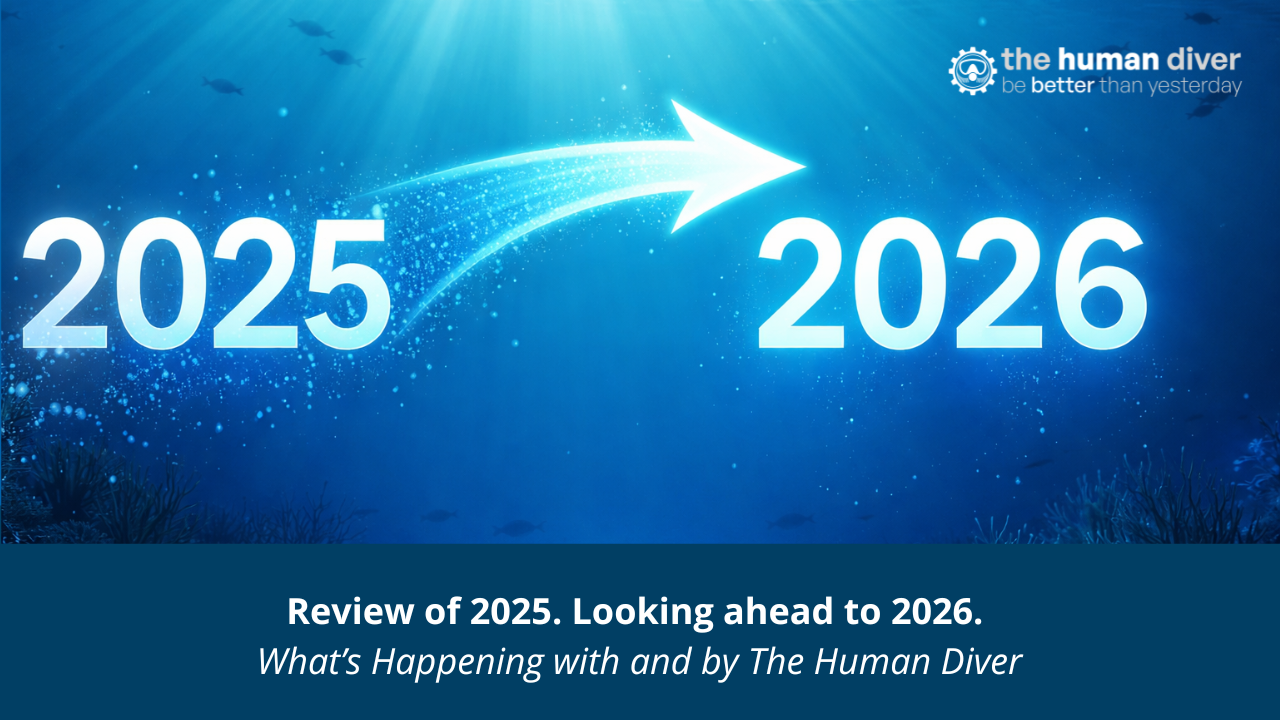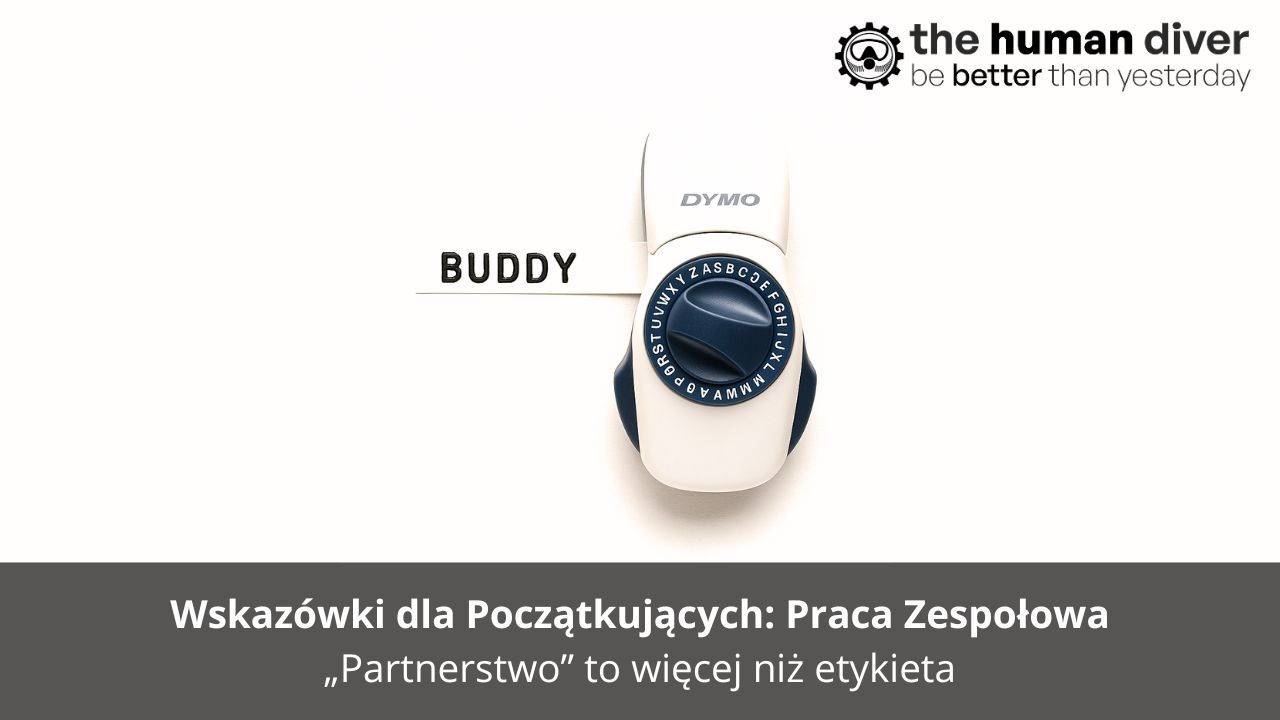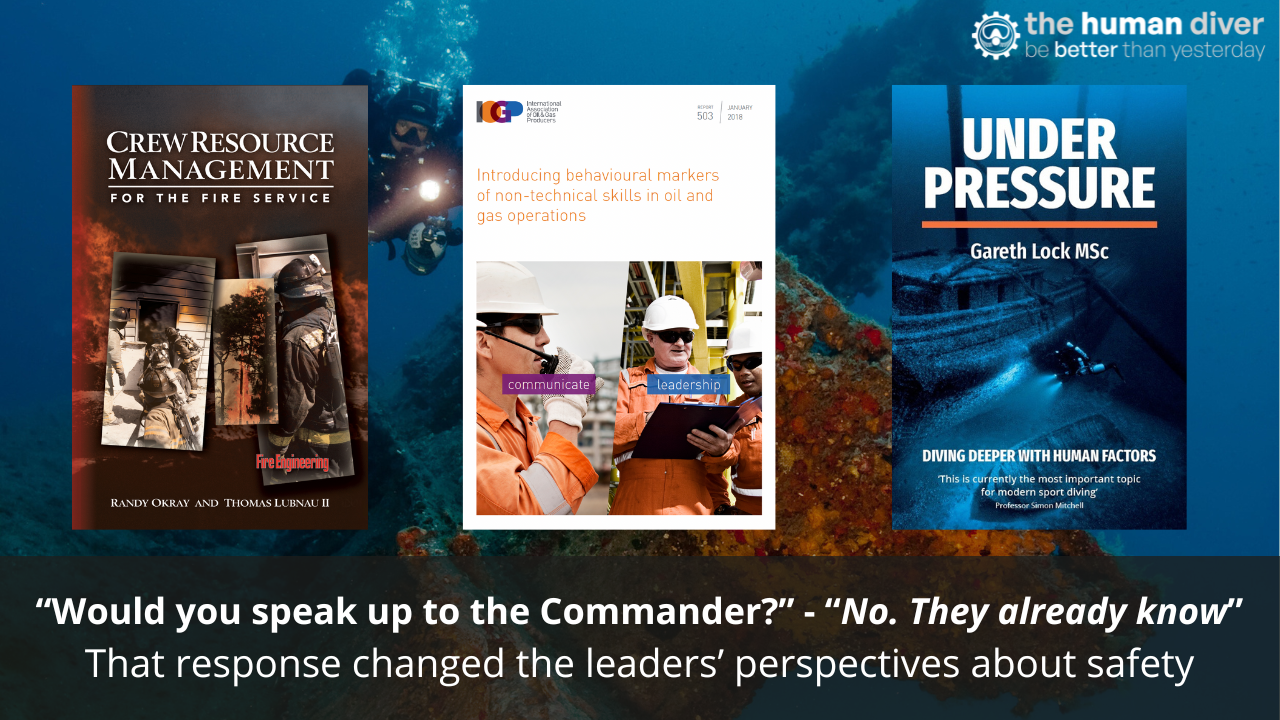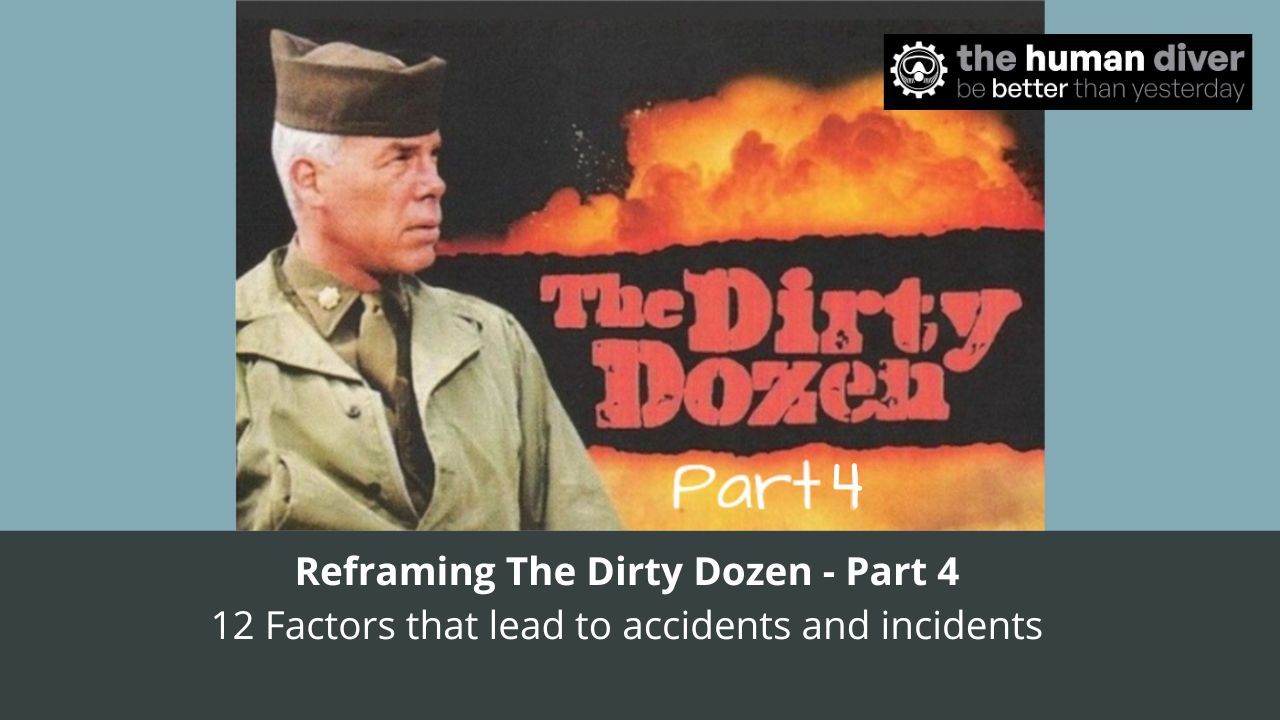
Reframing The Dirty Dozen - Part 4
Jun 18, 2025In the first three parts of this blog (Part one, two and three), we explored nine of the "Dirty Dozen" human factors that contribute to errors and incidents in diving: lack of communication, distractions, lack of resources, stress, complacency, lack of teamwork, pressure, lack of awareness and lack of knowledge. These factors, originally developed by Gordon Dupont, offer a valuable framework for identifying and mitigating risks in diving. Human factors are universal, and their application to diving, both recreational, technical and professional, is crucial for safety and performance.
In this fourth installment, we’ll look at the remaining three factors: fatigue, lack of assertiveness and norms. As you read, consider how these factors manifest in your diving activities and what steps you can take to address them.
Fatigue
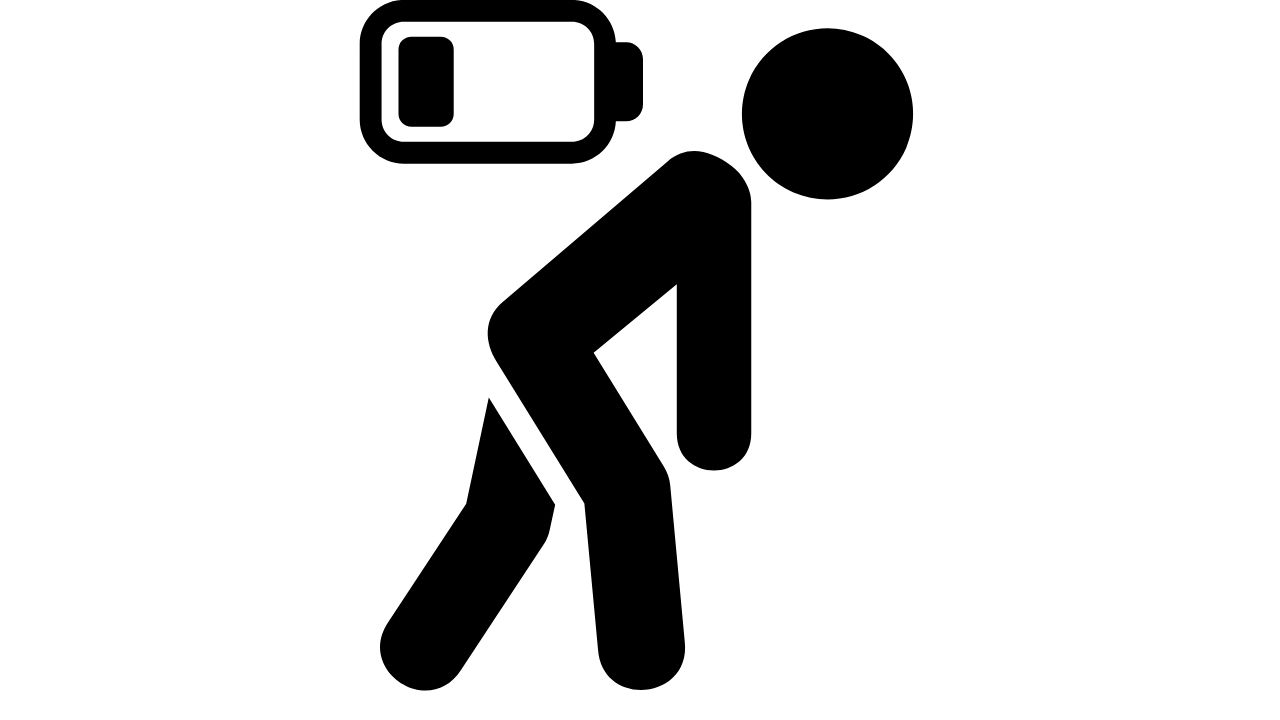
Fatigue refers to the physical or mental exhaustion that impairs performance. It can result from prolonged activity, insufficient rest, or high stress levels. Fatigue might manifest as a diver struggling to stay focused during a long dive or making errors in equipment setup after a poor night’s sleep. It can also arise from multiple dives over consecutive days without adequate recovery. Exhaustion reduces cognitive function, reaction times, and situational awareness. In diving, these impairments can lead to poor decision-making, errors in judgment, or even accidents.
Countermeasures: Using a tool such as HALT (checking in to see if anyone is Hungry/Angry/Late or Lonely/Tired) before a dive can help identify if any team members are fatigued. The team can then help support that diver, whether that’s by encouraging them to skip a dive and rest, reducing the level of the dive or removing task loading. The culture or environment will often influence divers; if everyone is staying up late and drinking it is difficult to be the one to go to bed early, and even more so to suggest others do the same.
It’s not uncommon for divers to travel long distances to reach a dive destination, so we need to be aware of the effects of travel and jet lag. Due to sunk cost fallacy, we may believe we’ll get more out of a trip by pushing through but the reality may be that by taking a day to rest we get far more out of a trip, especially if we’re taking part in a class. When we’re tired we can get irritable, have slower reaction times and difficulty concentrating; none of which are conducive to learning.
Lack of Assertiveness

Lack of assertiveness refers to the inability or unwillingness to express concerns, ask questions, or challenge unsafe behaviors. In diving, this can arise from deference to authority, fear of conflict, or lack of confidence. Picture this: You’re diving with a more experienced buddy who insists on descending despite worsening weather conditions. You feel uneasy but hesitate to voice your concern, assuming they know best. Or, during a pre-dive briefing, you notice a missing step in the buddy check but choose not to speak up, thinking it’s not your place. Failure to assert can lead to unsafe situations, as critical issues go unaddressed. Diving is inherently a team activity, and mutual respect for each diver’s voice is vital for shared safety.
Countermeasures: Cultivating a psychologically safe environment where all divers feel empowered to speak up is critical. This means creating a culture where questions and concerns are welcomed and addressed without judgment. The series of blogs linked here explain more on how to do this. Remember that expressing concerns is not about challenging authority but encouraging safety and collaboration. Using a tool such as PACE can help to gradually escalate concerns, especially if you are not in a position of authority. As a leader, reinforcing the idea that every diver’s input matters can help break down barriers of fear or hesitation.
Norms
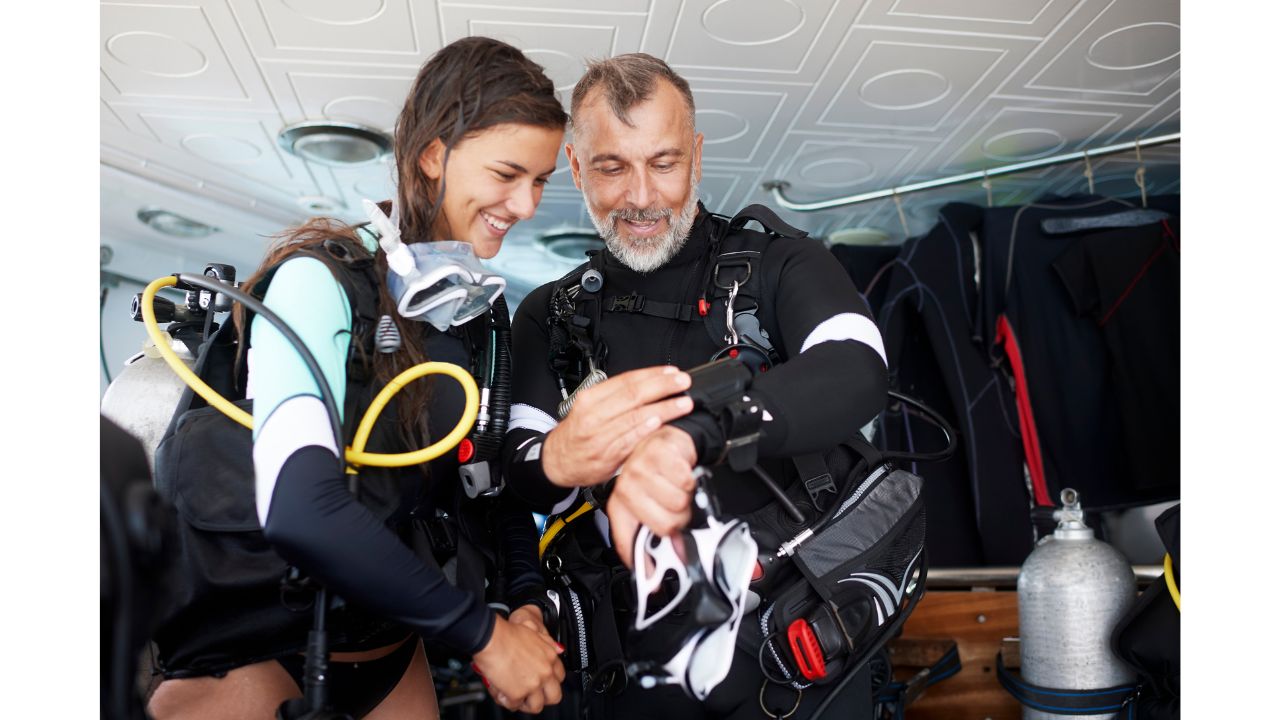
Norms are unofficial rules or behaviors that become standard practice within a group. These can be positive, promoting efficiency and consistency, or negative, leading to complacency and risk-taking. Imagine a dive center where skipping buddy checks has become commonplace. Everyone assumes that since nothing has gone wrong before, it’s unnecessary. Or consider a group that routinely pushes no-decompression limits, dismissing the need for caution. Over time, normalisation of deviance (negative norms which normalize unsafe practices) can lead to predictable yet avoidable errors. “We’ve always done it this way” can be a dangerous mindset.
Countermeasures: Negative norms need to be recognised in order to be addressed. Once they’ve been identified, it will take strong leadership and teamwork to combat these unsafe norms. When there is psychological safety in place, it is easier to challenge them. It’s also important to recognise the difference between normalisation of deviance and intentionally pushing boundaries, especially if diving at the limits for example when conducting exploration.
Conclusion
The key theme that runs through a lot of the Dirty Dozen are how much of an effect time and money have on negative behaviours. When we are rushed or cut corners in order to save money, it’s very easy for things to go wrong. Individuals can be pushed into doing things they may not normally do because of these pressures. In order to combat this, we need to encourage psychological safety and a Just Culture in order to allow people to speak up when things aren’t going right, and learn from each other's mistakes. Humans on their own are likely to make mistakes. If we treat our buddies as teammates, rather than just another body to dive with, we can help prevent them from falling into the traps that the Dirty Dozen presents, and likewise they can help us to do the same. We need to do our best to try and be aware of these but without the support of others even recognising the factors may not be enough. By reflecting on our own habits, challenging unsafe norms as much as we can and cultivating a culture of openness and learning we can combat the worst of the effects.

Jenny is a full-time technical diving instructor and safety diver. Prior to diving, she worked in outdoor education for 10 years teaching rock climbing, white water kayaking and canoeing, sailing, skiing, caving and cycling, among other sports. Her interest in team development started with outdoor education, using it as a tool to help people learn more about communication, planning and teamwork.
Since 2009 she has lived in Dahab, Egypt teaching SCUBA diving. She is now a technical instructor trainer for TDI, advanced trimix instructor, advanced mixed gas CCR diver and helitrox CCR instructor.
Jenny has supported a number of deep dives as part of H2O divers dive team and works as a dive supervisor and safety diver in the media industry.
If you'd like to deepen your diving experience, consider the first step in developing your knowledge and awareness by taking the Essentials of HF for Divers here. If you're curious and want to get the weekly newsletter, you can sign up here and select 'Newsletter' from the options.
Want to learn more about this article or have questions? Contact us.

